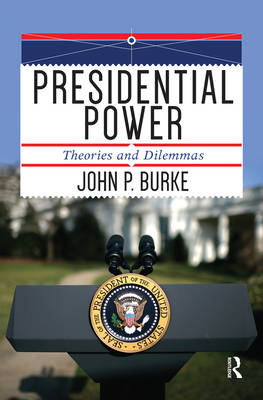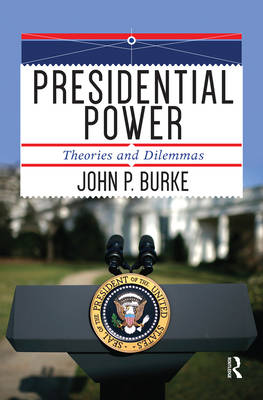
- Afhalen na 1 uur in een winkel met voorraad
- Gratis thuislevering in België vanaf € 30
- Ruim aanbod met 7 miljoen producten
- Afhalen na 1 uur in een winkel met voorraad
- Gratis thuislevering in België vanaf € 30
- Ruim aanbod met 7 miljoen producten
Zoeken
€ 290,45
+ 580 punten
Uitvoering
Omschrijving
Presidential power is perhaps one of the most central issues in the study of the American presidency. Since Richard E. Neustadt's classic study, first published in 1960, there has not been a book that thoroughly examines the issue of presidential power. Presidential Power: Theories and Dilemmas by noted scholar John P. Burke provides an updated and comprehensive look at the issues, constraints, and exercise of presidential power.This book considers the enduring question of how presidents can effectively exercise power within our system of shared powers by examining major tools and theories of presidential power, including Neustadt's theory of persuasion and bargaining as power, constitutional and inherent powers, Samuel Kernell's theory of going public, models of historical time, and the notion of internal time. Using illustrative examples from historical and contemporary presidencies, Burke helps students and scholars better understand how presidents can manage the public's expectations, navigate presidential-congressional relations, and exercise influence in order to achieve their policy goals.
Specificaties
Betrokkenen
- Auteur(s):
- Uitgeverij:
Inhoud
- Aantal bladzijden:
- 272
- Taal:
- Engels
Eigenschappen
- Productcode (EAN):
- 9780367098049
- Verschijningsdatum:
- 13/06/2019
- Uitvoering:
- Hardcover
- Formaat:
- Genaaid
- Afmetingen:
- 152 mm x 229 mm
- Gewicht:
- 530 g

Alleen bij Standaard Boekhandel
+ 580 punten op je klantenkaart van Standaard Boekhandel
Beoordelingen
We publiceren alleen reviews die voldoen aan de voorwaarden voor reviews. Bekijk onze voorwaarden voor reviews.








